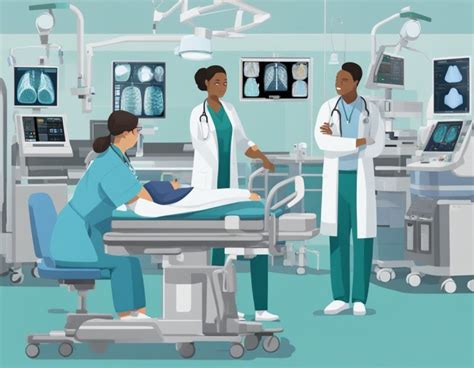Are you interested in pursuing a career in the medical field, but unsure which path to take? Two popular options are radiology technician and nursing. While both careers are essential to the healthcare system, they have distinct differences in terms of job responsibilities, education requirements, and work environments. In this article, we will delve into the career differences between radiology techs and nurses, helping you make an informed decision about which career path is right for you.
What is a Radiology Technician?
A radiology technician, also known as a radiologic technologist, is a medical professional responsible for taking images of the body using various imaging technologies such as X-rays, computed tomography (CT) scans, magnetic resonance imaging (MRI), and ultrasound. These images help doctors diagnose and treat diseases, injuries, and other medical conditions. Radiology technicians work closely with radiologists, who interpret the images to make diagnoses.
What is a Nurse?
A nurse is a healthcare professional who provides hands-on care to patients, administering medications, monitoring vital signs, and performing various medical procedures. Nurses work in a variety of settings, including hospitals, clinics, and long-term care facilities, and may specialize in specific areas such as pediatrics, gerontology, or critical care. Nurses play a vital role in promoting patient health, preventing disease, and educating patients and their families about healthy habits and disease management.

Education and Training Requirements
Both radiology technicians and nurses require specialized education and training to enter their respective careers.
- Radiology Technicians:
- Associate's degree in radiologic technology or a related field
- Completion of a radiologic technology program accredited by the Joint Review Committee on Education in Radiologic Technology (JRCERT)
- Certification by the American Registry of Radiologic Technologists (ARRT)
- Nurses:
- Associate's degree in nursing (ADN) or a Bachelor's degree in nursing (BSN)
- Completion of a nursing program accredited by the Commission on Collegiate Nursing Education (CCNE) or the Accreditation Commission for Education in Nursing (ACEN)
- Licensure by passing the National Council Licensure Examination (NCLEX-RN)
Job Responsibilities
Radiology technicians and nurses have distinct job responsibilities, reflecting their different roles in the healthcare system.
- Radiology Technicians:
- Take images of the body using various imaging technologies
- Position patients for imaging procedures
- Operate imaging equipment
- Maintain patient records and images
- Nurses:
- Assess patient conditions and develop care plans
- Administer medications and treatments
- Monitor patient vital signs and respond to emergencies
- Educate patients and their families about healthy habits and disease management
Work Environment
Radiology technicians and nurses work in different environments, reflecting their unique roles in the healthcare system.
- Radiology Technicians:
- Hospitals
- Imaging centers
- Clinics
- Private practices
- Nurses:
- Hospitals
- Clinics
- Long-term care facilities
- Community health organizations
Salary and Job Outlook
Both radiology technicians and nurses are in high demand, with salaries reflecting their level of education, training, and experience.
- Radiology Technicians:
- Median salary: $60,000 - $80,000 per year
- Job outlook: 9% growth (faster than average)
- Nurses:
- Median salary: $70,000 - $100,000 per year
- Job outlook: 12% growth (faster than average)

Conclusion
While both radiology technicians and nurses play critical roles in the healthcare system, their careers differ significantly in terms of job responsibilities, education requirements, and work environments. By understanding these differences, you can make an informed decision about which career path is right for you. Whether you choose to pursue a career as a radiology technician or a nurse, you can take pride in knowing that you are making a positive impact on the lives of others.
Gallery of Medical Career Images






FAQs
What is the difference between a radiology technician and a nurse?
+A radiology technician takes images of the body using various imaging technologies, while a nurse provides hands-on care to patients, administering medications and monitoring vital signs.
What education and training are required to become a radiology technician?
+To become a radiology technician, you need an associate's degree in radiologic technology or a related field, completion of a radiologic technology program accredited by the Joint Review Committee on Education in Radiologic Technology (JRCERT), and certification by the American Registry of Radiologic Technologists (ARRT).
What is the job outlook for radiology technicians and nurses?
+Both radiology technicians and nurses are in high demand, with salaries reflecting their level of education, training, and experience. The job outlook for radiology technicians is 9% growth (faster than average), while the job outlook for nurses is 12% growth (faster than average).
